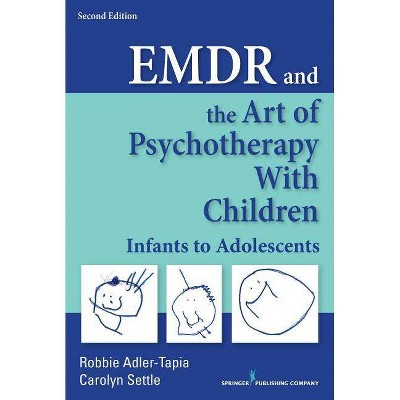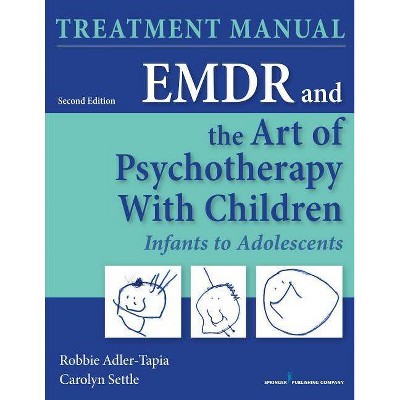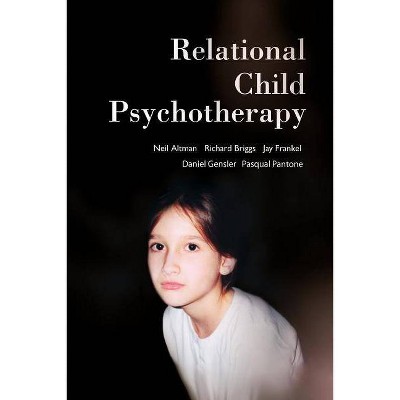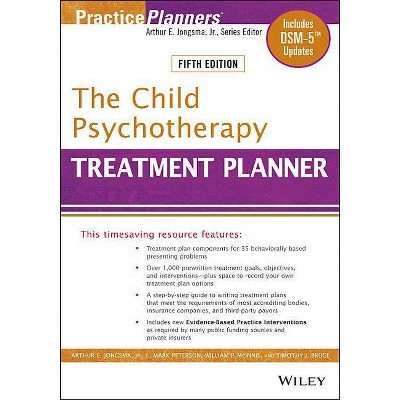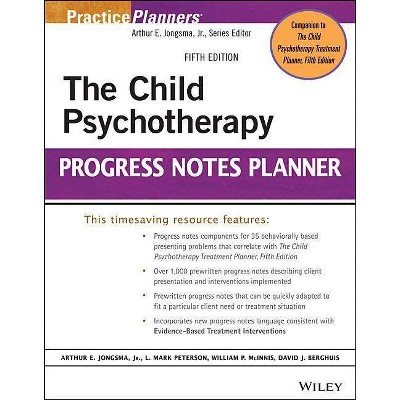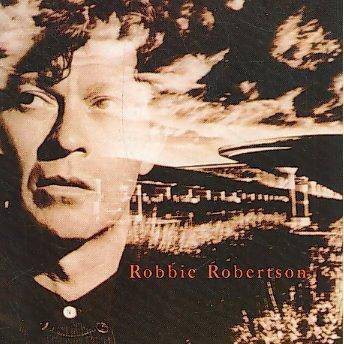Child Psychotherapy - by Robbie Adler-Tapia (Paperback)
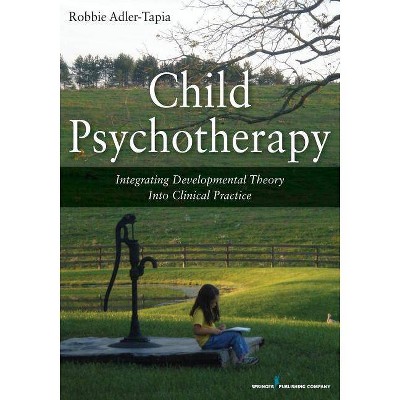
Similar Products
Products of same category from the store
AllProduct info
<p/><br></br><p><b> About the Book </b></p></br></br>"<P>All too often children are diagnosed and medicated without the consideration that their symptoms may actually be a healthy response to stressful life events. This integrative guide for mental health practitioners who work with children underscores the importance of considering the etiology of a child's symptoms within a developmental framework before making a diagnosis. Providing advanced training and skills for working with children, the book guides the therapist, step-by-step, through assessment, case conceptualization, and treatment with a focus on the tenets of child development and a consideration of the impact of distressing life events. <P>The book first addresses child development and the evolution of child psychotherapy from the perspectives of numerous disciplines, including recent findings in neurodevelopmental trauma and neurobiology. It discusses assessment measures, the impact of divorce and the forensic/legal environment on clinical practice, recommendations for HIPAA compliance, evidence-based best practices for treating children, and the requirements for an integrated treatment approach. Woven throughout are indications for case conceptualization including consideration of a child's complete environment. Key Features: <P> Provides an integrative approach to child psychotherapy from the perspective of healthy development Offers an alternative to the medical model Discusses key theories of child development and psychotherapy Integrates a multimodal approach that considers a child's daily environment Includes a template for organizing and implementing a successful practice "<p/><br></br><p><b> Book Synopsis </b></p></br></br><p>All too often children are diagnosed and medicated without the consideration that their symptoms may actually be a healthy response to stressful life events. This integrative guide for mental health practitioners who work with children underscores the importance of considering the etiology of a child's symptoms within a developmental framework before making a diagnosis. Providing advanced training and skills for working with children, the book guides the therapist, step-by-step, through assessment, case conceptualization, and treatment with a focus on the tenets of child development and a consideration of the impact of distressing life events. </p> <p>The book first addresses child development and the evolution of child psychotherapy from the perspectives of numerous disciplines, including recent findings in neurodevelopmental trauma and neurobiology. It discusses assessment measures, the impact of divorce and the forensic/legal environment on clinical practice, recommendations for HIPAA compliance, evidence-based best practices for treating children, and the requirements for an integrated treatment approach. Woven throughout are indications for case conceptualization including consideration of a child's complete environment.</p> <b>Key Features: </b> <p><ul> <li>Provides an integrative approach to child psychotherapy from the perspective of healthy development <li>Offers an alternative to the medical model <li>Discusses key theories of child development and psychotherapy <li>Integrates a multimodal approach that considers a child's daily environment <li>Includes a template for organizing and implementing a successful practice <li>Features an instructor's manual and course syllabus </ul><p/><br></br><p><b> From the Back Cover </b></p></br></br>"<P>All too often children are diagnosed and medicated without the consideration that their symptoms may actually be a healthy response to stressful life events. This integrative guide for mental health practitioners who work with children underscores the importance of considering the etiology of a child's symptoms within a developmental framework before making a diagnosis. Providing advanced training and skills for working with children, the book guides the therapist, step-by-step, through assessment, case conceptualization, and treatment with a focus on the tenets of child development and a consideration of the impact of distressing life events. <P>The book first addresses child development and the evolution of child psychotherapy from the perspectives of numerous disciplines, including recent findings in neurodevelopmental trauma and neurobiology. It discusses assessment measures, the impact of divorce and the forensic/legal environment on clinical practice, recommendations for HIPAA compliance, evidence-based best practices for treating children, and the requirements for an integrated treatment approach. Woven throughout are indications for case conceptualization including consideration of a child's complete environment. Key Features: <P> Provides an integrative approach to child psychotherapy from the perspective of healthy development Offers an alternative to the medical model Discusses key theories of child development and psychotherapy Integrates a multimodal approach that considers a child's daily environment Includes a template for organizing and implementing a successful practice Features an instructor's manual and course syllabus "
Price History
Price Archive shows prices from various stores, lets you see history and find the cheapest. There is no actual sale on the website. For all support, inquiry and suggestion messagescommunication@pricearchive.us
